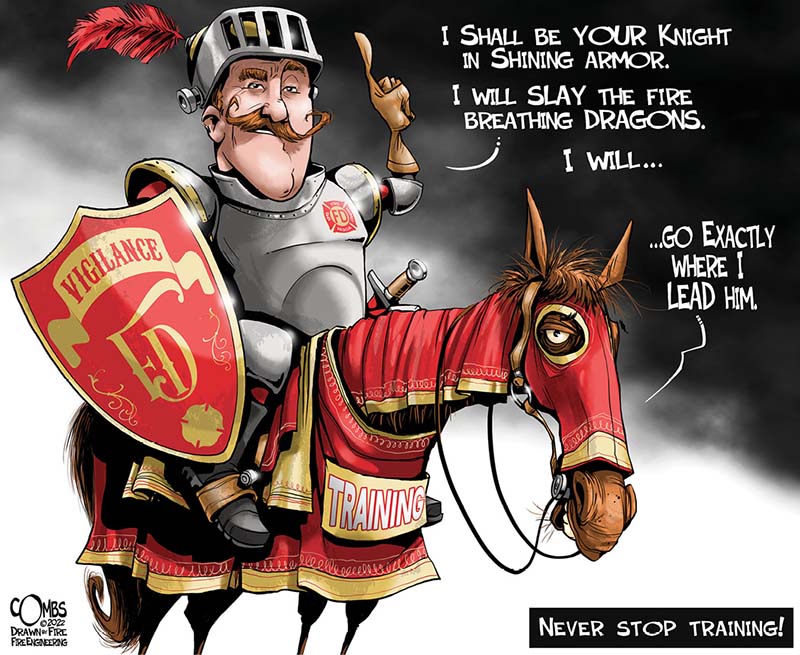
The Constant Professional
In ancient Japan, there was a class of men whose whole lives were a continuous pursuit to be the best at their craft, with an unwavering devotion to their domain. Everything they did was to hone these skills. They were Samurai, and they were meticulous in everything they did. In their world, it meant life and death. The life of a Samurai was a continuous devotion to the craft—or, in other words, a constant professional. If not, then that Samurai did not last long in the field of battle.
Being a constant professional in the fire service is not far from the Samurai work ethic; we understand that we need to know our craft, be immersed in the culture, and understand what it means to be a firefighter. There are other similarities between firefighters and Samurai.
The most important similarity is training—something that is done at the highest level with the most stress possible. This is done on purpose to simulate as much as possible how it will be on the battlefield. Whether in the hills of Japan or at a five-alarm fire, both need to be ready for that day. Fire is unforgiving, does not discriminate, does not care about thoughts and feelings; it is the enemy. Low frequency/high risk is preached at us all the time; yet, in many places, we are not training to be aggressive, to be that constant professional. We should be training with a purpose, aggressively. This does not mean being reckless but decisive and deliberate. Training in departments that don’t fight much fire is priceless, because once that alarm goes off, you are expected to perform at the highest level. Samurai trained as if their lives depended on it because, at the end of the day, it did.
An instructor at Texas A&M Engineering Extension Service once said, “We observe the small details to make the bigger picture.” Samurai were vigilant because a small detail could be the difference between a success and a defeat. Every part of their lives was detailed rituals—the way they dressed, their everyday duties—the small details were being scrutinized. At a fire, the small details could save your life. The details could be looking up and noticing the roof is sunk in, the floor is hot but you see no fire, the walls are hot in an old house, where smoke is coming from, what kind of smoke it is. These are all details that training should prepare you for. Seeing the subtle details at a house where the smoke is acting as if gravity does not affect it, slithering down the wall like a curtain of warning, inviting you to the show; the curtain falls, then is retracted back up. These signs can be interpreted that this fire may be oxygen limited, and as soon as we give the fire what it wants, the fire, in return, is going to give us an unwanted surprise. This is where we must ask, Did you see the smoke? What it was doing? What it was showing you?
Or, did you run up to the house so excited and reckless that you became blinded with tunnel vision and were about to make the worse mistake not just in your life but possibly in the lives of your brothers/sisters? Small details are all part of a larger picture. Being a constant professional is being aware of the subtleties, the details. This can all be traced back to training—learning to look, feel, listen before we react, walk in the fire field; this is all done for a reason. Train to be as comfortable as possible while being aggressive. Be comfortable enough to see the small details; be aggressive enough to do the job.
For the Samurai, this was what they were paid for, not just the fact they were to fight and possibly die but the lords paid them to be in a constant state of readiness, a constant professional in everything they did. This is what is expected of us, volunteer or paid. We are expected to know our craft. When the population calls on us, we need to be in a constant state of readiness, show up and be ready to do the work, go to the field of battle, and possibly lay down our lives. Are we being the constant professional people expect us to be? Let’s learn from the past so we can be propelled into the future with an understanding of mistakes made and corrected. Always strive to be and do better, learning, training like our life depended on it, like our brothers’/sisters’ lives depend on it. Let’s be that constant professional.
Charles Henness
Firefighter/Paramedic
Stephenville, Texas


